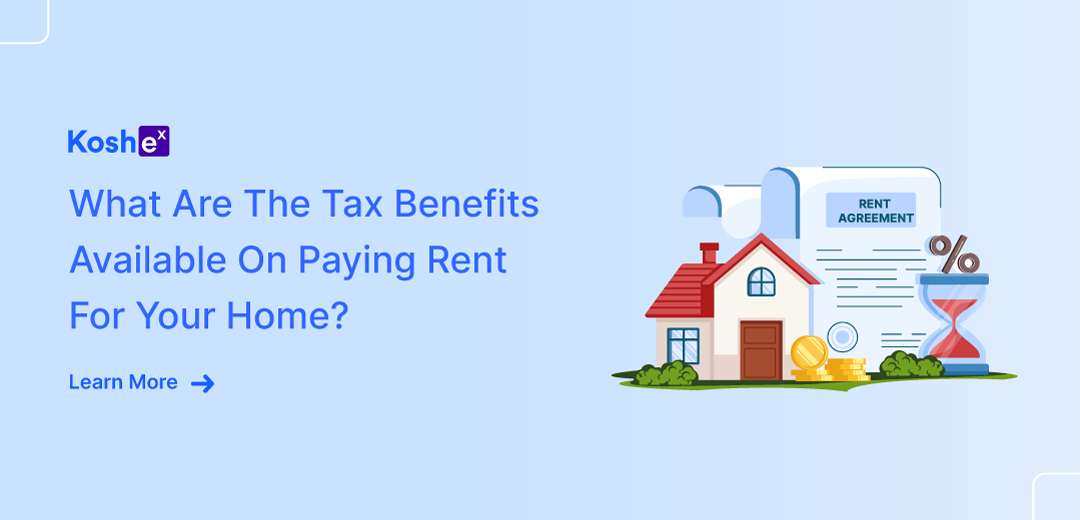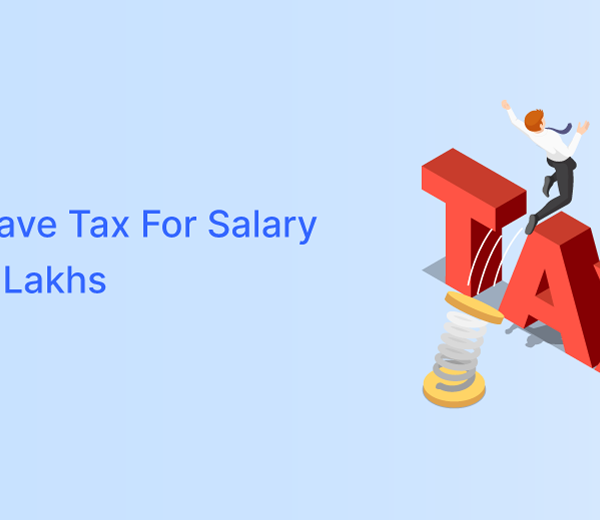Paying rent for your home has potential tax benefits. Understanding the Indian income tax laws and taking advantage of the provisions available can significantly reduce your taxable income.
In this comprehensive guide, we will delve into the various tax benefits you can leverage by paying rent and how it can impact your financial planning. By optimizing these opportunities, you can potentially increase your savings, lower your tax liability, and build a more secure financial future.
Millennials and Gen-Z professionals in India are actively seeking ways to maximize their income by exploring various investment avenues. However, many are unaware of the tax benefits associated with renting a home. By harnessing these benefits effectively, you can optimize your tax planning strategies and achieve long-term financial goals.
At Koshex, we understand the importance of empowering individuals with knowledge and tools to make informed financial decisions. Our platform provides personalized insights and seamless transactions, allowing you to take control of your finances. Sign up with Koshex today and discover how our tailored solutions can help you unlock your full financial potential.
Understanding House Rent Allowance HRA:
House Rent Allowance (HRA) is a salary component provided by employers to assist with rental expenses. Subject to certain conditions, the HRA received by an employee is either partially or fully exempt from taxation, offering relief for those renting a house.
Eligibility Criteria for HRA Deduction
To qualify for an HRA deduction under Section 10(14) of the Income Tax Act, three conditions must be met:
- Residing in a rented house.
- Non-ownership of the house by the employee or their spouse.
- The rent paid surpasses 10% of the total salary.
Calculating HRA Deduction
HRA (House Rent Allowance) is calculated using the least of the following three amounts:
- Actual HRA Received: The actual amount provided by the employer.
- Rent Paid – 10% of Salary: The rent paid annually minus 10% of the salary.
- 50% (or 40%) of Salary: Either 50% of the salary for residents in metro cities or 40% for those in non-metro cities.
Aman, an employee living in a metro city, receives a monthly salary of Rs. 60,000. His monthly rent is Rs. 15,000, and the actual HRA provided by his employer is Rs. 18,000.
Calculation:
- Actual HRA Received: Rs. 18,000
- Rent Paid – 10% of Salary: (Rs. 15,000 * 12) – (10% of Rs. 60,000) = Rs. 1,80,000 – Rs. 6,000 = Rs. 1,74,000
- 50% of Salary: 50% of Rs. 60,000 = Rs. 30,000
Result: The HRA exemption is calculated as the least of these three amounts, which is Rs. 18,000 in this example. Therefore, John can claim Rs. 18,000 as an exempted HRA component while filing his income tax returns.
How does HRA work?
To claim HRA benefits, certain conditions must be met:
1. Salary Structure: Your salary structure should include an explicit component for HRA.
2. Rental Agreement: You must have a valid rental agreement with the property owner.
3. Rent Receipts: You should have rent receipts as proof of payment.
Income Tax Return (ITR) and Rent Receipts
Importance of Rent Receipts
Rent receipts play a crucial role in availing tax benefits on paying rent for your home. They serve as evidence that you have indeed paid rent and can be used to claim HRA exemptions while filing your Income Tax Return (ITR). It is essential to obtain these receipts from your landlord every month.
Also Read: How to Save Tax in India | Tax Saving Guide
Required Information on Rent Receipts
Rent receipts should contain the following information:
1. Date of issue
2. Name and address of the landlord
3. Tenant’s name
4. Rental period
5. Amount of rent paid
6. Signature of the landlord
Ensure you collect rent receipts regularly to avoid any issues during tax filing.
Tax Benefits Available on Paying Rent
HRA Exemption
As mentioned earlier, the HRA component of your salary can be exempted from income tax, subject to certain conditions. By utilizing this exemption effectively, you can reduce your taxable income and lower your tax liability.
Deduction under Section 80GG
For individuals who do not receive HRA but still pay rent for their accommodation, Section 80GG of the Income Tax Act provides a deduction. This deduction is primarily applicable to self-employed individuals or salaried employees who do not receive HRA benefits.
The maximum deduction available under Section 80GG is Rs. 5,000 per month or 25% of total income, whichever is less.
Tax Planning Strategies for Renters
Optimize Your Rental Agreement
To maximize tax benefits, ensure your rental agreement reflects accurate details such as the correct rental amount and duration. It is essential to maintain transparency and keep all necessary documents to avoid discrepancies during tax filing.
Submit Accurate Rent Receipts
Ensure that the rent receipts you submit are accurate and aligned with the amounts mentioned in your rental agreement. Any inconsistencies may raise red flags during tax assessment.
Utilize Other Tax Saving Investments
While optimizing your tax benefits on paying rent is crucial, it is equally important to explore other tax-saving investment options. Consider tax-saving instruments such as Equity-Linked Savings Schemes (ELSS), Public Provident Fund (PPF), and National Pension Scheme (NPS) to diversify your portfolio and further decrease your tax liability.
Also Read: How To Open A PPF Account Online & Offline
Conclusion
By understanding the various tax deductions available to renters and taking advantage of smart strategies, you can significantly reduce your tax burden and unlock the full potential of your rent payments. Remember, the key is to be organized, keep track of all your expenses and receipts, and consult a tax professional for personalized guidance. By implementing these tips, you can make the most of your rental situation and enjoy the financial benefits of owning your own home, even before you do.
Koshex offers an innovative platform that provides tailored financial solutions to help you achieve your long-term goals. Sign up with Koshex today and empower yourself with personalized insights and seamless transactions. Make informed financial decisions and secure a brighter future for yourself.
FAQs:
Q1: Can I claim HRA benefits if I live in my own house?
A1: No, HRA benefits are only applicable if you live in a rented accommodation. If you own the house or live in a house for which no rent is paid, then HRA exemptions cannot be claimed.
Q2: Is there an upper limit on the deductions available under Section 80GG?
A2: Yes, the maximum deduction available under Section 80GG is Rs. 5,000 per month or 25% of total income, whichever is less.









Leave a Comment